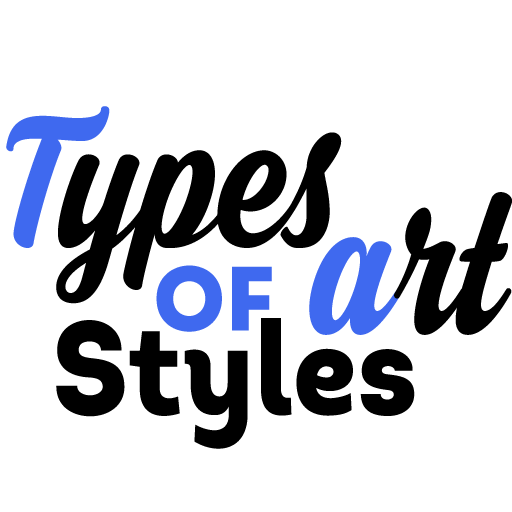classic literature: what it is, how it was born, characteristics, genres and works
Contents
What is the classical period?
The classical period of literature is the period from the 10th century B.C. to the 5th century A.D.. It is considered the cornerstone of what will be, later on, the consolidation of literature at a universal level. Thus, the literature of this period encompasses both Greek and Latin literature.
By this time in history, the peoples had already formed settlements, however, a series of wars and conflicts developed between the city-states that mainly involved Ancient Greece and the Persian Empire, events that would give rise to a large number of social, political and cultural changes that would be reflected in the literary productions of the time.
History and origin of the classical literary period
We speak of the classical period to refer to the Greco-Roman period located in the Ancient Age between the Near Ancient East in its first civilizations, the High Antiquity and the Low Antiquity, which is also known as Late Antiquity. Here it is very important to take into account that there is already a cultural heritage that manages to be maintained after the “dark centuries” and that will reach its peak in later times.
It is necessary to mention that during this period, several determining events take place, such as the birth, the apogee and the fall of Greek and Roman cities, events that will allow the production of a great amount of literary content, hence it is possible to identify the classical period of literature.
On the other hand, it is necessary to mention that although the classical period of literature also involves Rome, much of what this culture maintained was inherited from what was developed by Greece after the conquest of this territory, hence Greek literature was taken as a model for the continuation and development of Roman literature in terms of forms and themes.
Literary Development of Genres and Subgenres
At this time the first genres and subgenres of literature begin to be established, characterized in this first instant in a particular way and conceived as follows:
Lyric poetry: or lyric poetry, as it will be known later, will have one of the most important advances at this time, since stories are developed that express the concern of the people of the time, reflected in works such as “The Odyssey” and “The Iliad”, by Homer, main exponent of the literature of the classical era, as well as other authors that we will see later.
Ode: in this period also appears the ode, another of the literary subgenres that will focus on love songs. Particularly the ode will provide the lyric genre with the intimacy with which it will be characterized from that moment on.
Elegy: it is considered one of the first established subgenres in which authors such as Archilochus of Paros appear, who develops texts in which he sings to his homeland, which was destroyed by wars and clashes between city-states.
Dramatic genre: it is important to highlight that a genre that was born in an evident way within this literary period is the dramatic genre, which begins with a series of representations of religious character that involves the human being with the gods, destiny and the universe. This has its origin in the choral poetry that was sung in the festivities in honor of Dionysus. Thus, drama, comedy and tragedy are developed.

Main characteristics of the classical period in literature
The most important characteristics of this literary epoch are:
Literary content: one of the most important particularities of this time, due to the constant confrontations and wars, will be the approach of the ideal of the man of the time, so that the literary production evidences a search for perfection and the ideal of beauty of the most important men, worthy of building and imitating.
On the other hand, the literature of the classical period will also be distinguished by emphasizing stories that express personal and intimate tones, where the authors establish dialogues with themselves, making known their emotions and feelings.
Form of composition: as for the form of composition that these first stories of the classical era had, the rhyme was mainly developed, which facilitated the memorization of these, in addition to a certain number of syllables, a form that will be the basis for the production of another series of varied stories.
Prose: it is in this epoch where the signs of prose also appear, which will be composed with the purpose of being read and which will allow the narration of the constant conflicts between Greece and Persia.
Form of transmission: another of the most important characteristics of the classical period of literature has to do with the way in which the first stories are transmitted, since it is based on an oral transmission, which, similar to the pre-classical period, will pass from generation to generation to stay alive with the passage of time and regions.
Ideal of beauty: this constant search, initiated and promoted by men, pursues an ideal beauty of the human body to be achieved through harmony and balance.
Writings on the origin: at this time continues the writing of texts that seek to give explanations about the origin of the world, the human being and the universe, a continuation of what was born in the pre-classical period of literature. However, each culture will have a different explanation as to the origin of everything.
Characters of the works: particularly in the Greek myths the characters will be heroes and gods. The gods will be immortal and with a lot of power, but with an evident closeness to the human, which was represented from virtues and defects such as anger, resentment, envy, jealousy, kindness, etc. Heroes would be men who possessed extraordinary qualities, and could be the sons of mortals or of gods. Both types of characters were substantial for the poets of the time, who took them as inspiration for their works, but they will continue to be present in the poets of posterity.
Roman literature: as we mentioned, Roman literature resides in the heritage of Greek literature, however, changes will arise such as the invention of subgenres such as fable, oratory and rhetoric. In addition, literature, as well as other artistic expressions conceived up to this moment, will be ideological instruments that will be at the service of the Roman Empire.
Latin language: with the adoption of literature, Rome will begin to transmit the Latin language to the Western world, as well as other areas such as the organization of government, engineering, law and administration.
By this time, Aristotle begins to establish the distinctions of the first stories from epic poetry and epic, as well as lyric poetry and elegy, genres and subgenres that you can find in our section of literary genres. In addition, the production in rhyme and the number of syllables, will allow the construction of other subgenres such as romances, odes, elegies and sonnets.
As for the most representative authors of the time, the name of Homer, who is dedicated to the writing of the great heroes and their adventures with works such as “The Iliad” and “The Odyssey”, as well as Plautus, who was dedicated to the writing of comedies and Hesiod, with his writings “Theogony”, where he explains the genealogy of the Greek gods, “Works and Days”, among others.
As for the Roman works of the classical period, there are authors such as Virgil with his work “Aeneid”, main exponent of the epic genre, Suetonius with The Twelve Caesars, Horace with works such as epistles, odes and satires, among others that were decisive for the development of literature.
